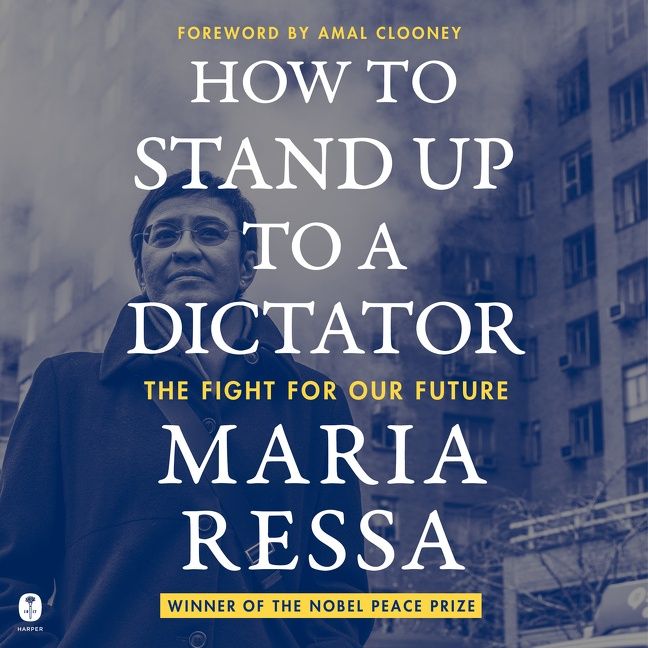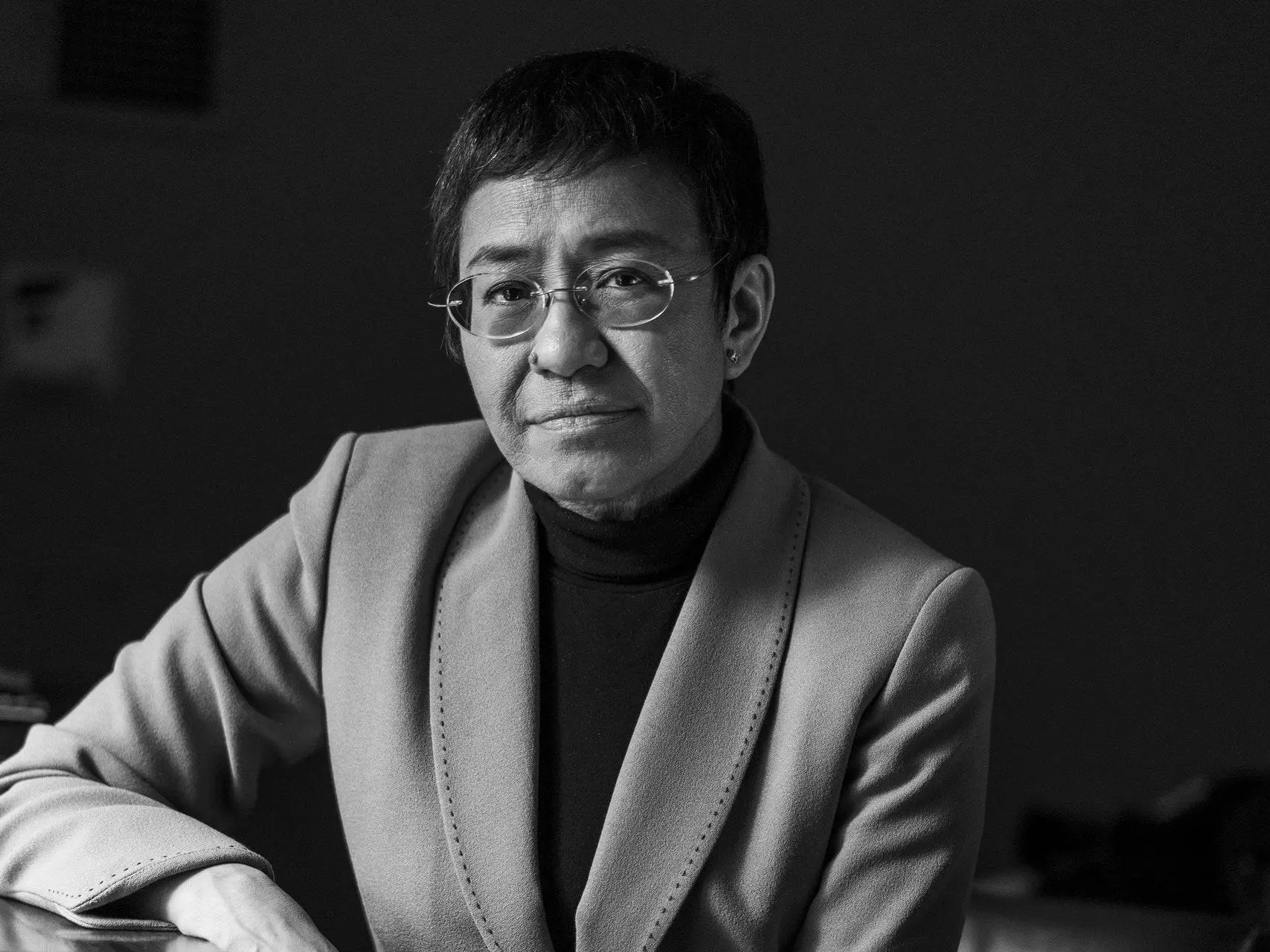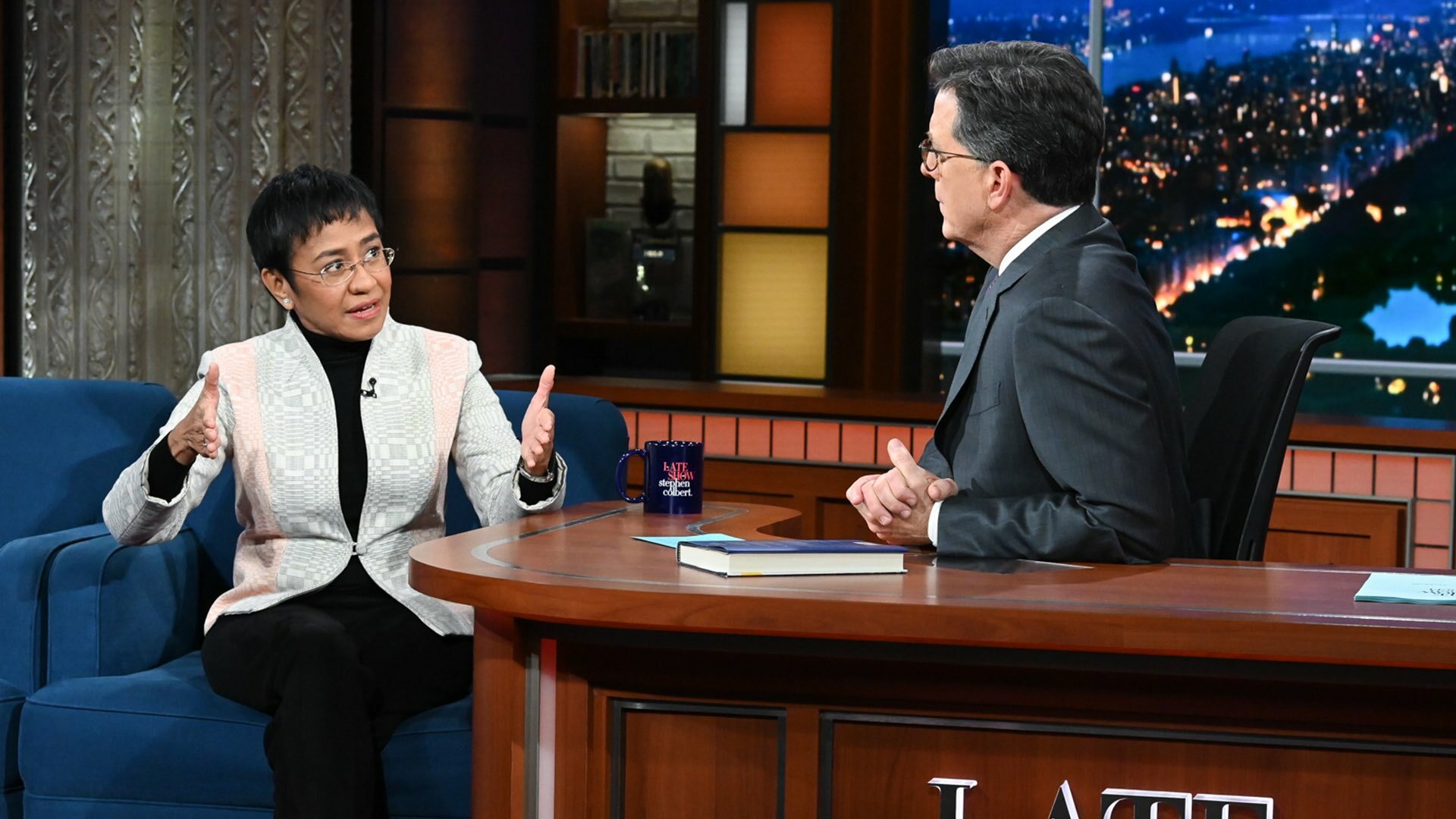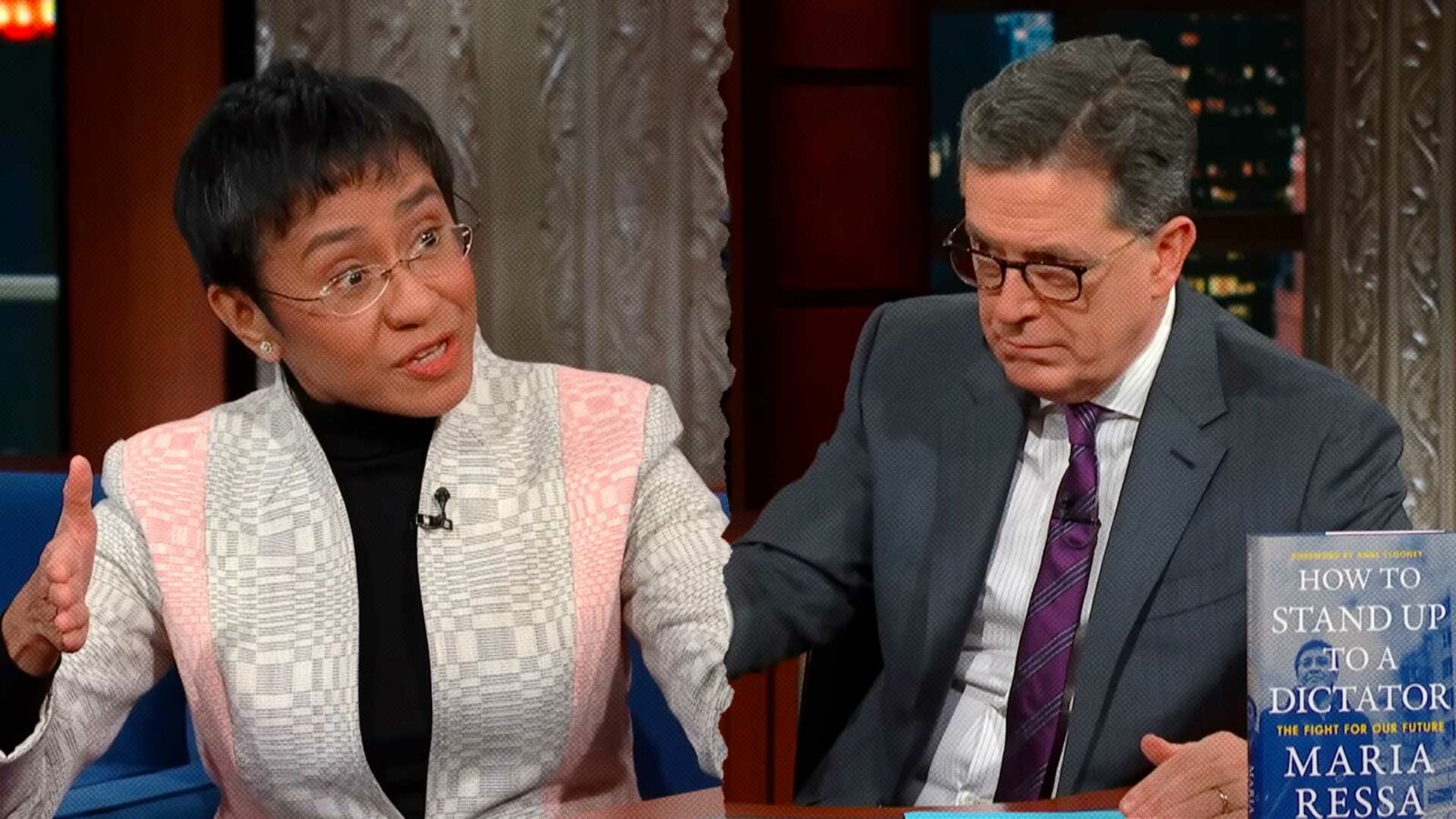While promoting her new memoir on The Late Show with Stephen Colbert, Maria Ressa talks about standing up to a dictator and how social media stifles free speech.
Related: Maria Ressa Champions Philippine Journalism With Her Albie Award
Apart from signaling the holidays and the impending culmination of the year, December is also the Universal Human Rights Month, commemorating the anniversary of the United Nation General Assembly’s landmark adoption of the Universal Declaration of Human Rights in 1948. And perhaps the most ideal person that can remind us of the value of our constitutional rights and personal freedoms is Maria Ressa, the first Filipino Nobel Peace Prize awardee.
Currently, the embattled journalist is promoting her powerfully relevant memoir, How To Stand Up To a Dictator: The Fight of Our Future. While all of her interviews feel like insightful lectures on their own, Ressa’s appearance on The Late Show with Stephen Colbert proves to be a stand out and not one to be missed. Viewed over a hundred thousand times now, the popular talk show finds Maria Ressa emphatically talking about democracy, holding the line against authoritarianism, and surveillance capitalism with stunning clarity and impactful words that will stir you into action.
HOW TO STAND UP TO A DICTATOR
“You don’t know what freedom means until you’re about to lose it,” says Maria Ressa, CEO and co-founder of the digital investigative journalism site, Rappler, after a warm welcome from talk show host Stephen Colbert and his audience. Ressa earned the prestigious Nobel Peace Prize distinction last year for safeguarding freedom of expression and democracy, and for fearlessly exposing the “abuse of power, use of violence and growing authoritarianism” in the Philippines.
Asked about the ways through which she stands up to a dictator, the focal point of her new book, Ressa firstly and earnestly tells us to value the freedom that we have. “When I began to lose my freedom, like my right to travel, then I realized I was taking it for granted,” shares Ressa, who is currently out on bail. After earning the ire of former president Rodrigo Duterte for Rappler’s critical attention to his deadly drug war, Ressa, her colleagues, and her news company are now facing a dozen lawsuits, which include a cyber libel conviction, tax evasion, and securities fraud cases.
Maria Ressa likens this realization to a “death by a thousand cuts,” explaining that the attacks on democracy are like tiny cuts to our freedom that grow increasingly worse until unknowingly, we bleed out and reach the point of collapse. This is also echoed in Ramona Diaz’s award-winning documentary, A Thousand Cuts, which chronicles the Duterte administration’s crackdown on Maria Ressa and the Philippine news media.

The second tip Ressa shares on fighting a dictator, especially in the digital age, is to hold the line. “In my country, what happened is that it’s almost like the government took a bulldozer and was trying to force us off the line that’s defined by the constitution,” furthers Ressa who’s been a journalist for three decades now. “And what we did is, I kind of said hold the line, link arms, do not voluntarily give up your rights. And we didn’t, and that’s how you stand up to a dictator.”
Finally, Maria Ressa articulates that resisting a dictatorship starts within us, an individual battle inspired by our morals, principles, and choices. “In the end, it starts with: What do you believe in? Who are you? What are the values that are there? Where is the line you draw where on this side, you’re good, and on this side, you’re evil. That’s an individual battle for each of us. That’s where it begins,” explains Ressa with admirable and contagious passion that earns the applause of the audience.
“DATA DOESN’T LIE”
In a heavily digitized society where misinformation, disinformation, and malinformation are pervasive, the need to fight for the truth is of paramount importance. Maria Ressa is strikingly aware of this, especially in the Philippines where “fake news” seems commonplace and is used as a political tool to skew perspectives and opinions.

After articulating the similarities between what happened in the Philippines in 2016, where the damaging effects of social media, especially of Facebook, was at its peak, and the United States Capitol riots just two years ago, Maria Ressa foregrounds a compelling statement that she has repeatedly emphasized since her Nobel Prize lecture: “Without facts, you can’t have truth. Without truth, you can’t have trust. Without these three, we have no shared reality, we can’t solve any problems, we have no democracy.”
“That’s what social media has done,” Ressa continues. “It has used free speech to stifle free speech.” Expanding on this, the veteran journalist sheds light, with eloquence and backed up by facts, on Shoshanna Zuboff’s “surveillance capitalism,” pointing to a kind of economic system today where our personal data is commodified for profit. “Lies spread faster than facts,” Maria Ressa says, adding that recent studies have found that it’s fear, anger, and an us-against-them attitude that keep people scrolling on the internet.

“More money comes in as you become more afraid, as you become more hateful, and it impacts us on many levels: personally, psychologically, sociologically,” she proceeds. “What kind of species behavior are we encouraging with this information ecosystem? It is the worst of who we are. It is backed up by facts and evidence. The data doesn’t lie.”
Continue Reading: Maria Ressa Is The First Filipino To Receive A Nobel Peace Prize





